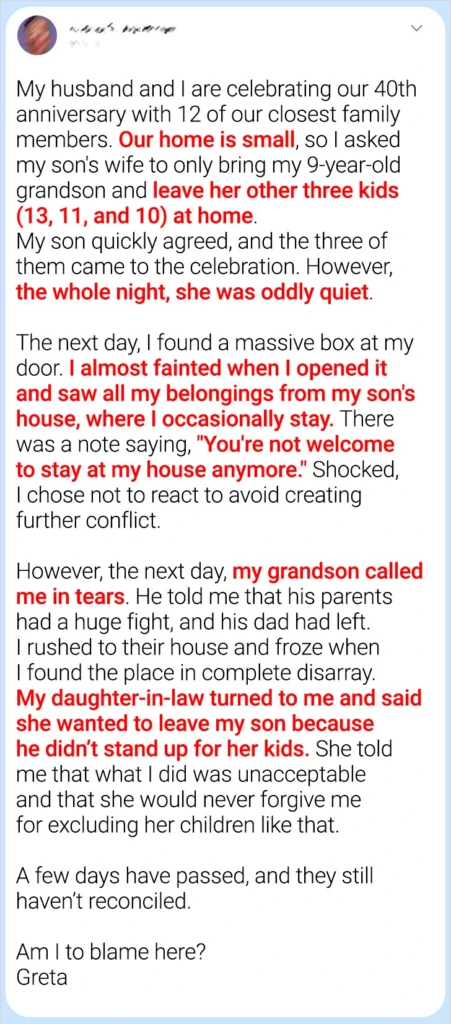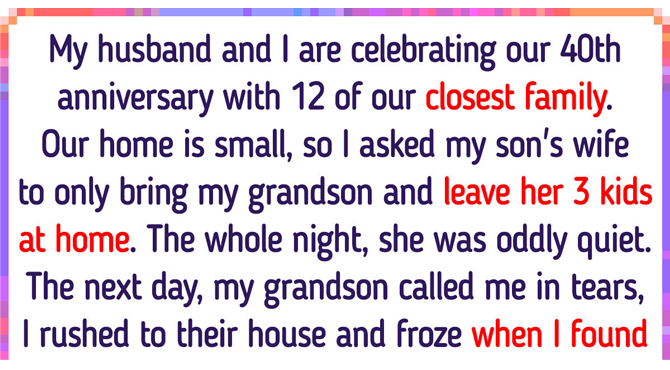Family gatherings and celebrations are meant to bring loved ones closer, but for Greta, her 40th wedding anniversary had the opposite effect. Hoping to manage the space in her packed home, Greta asked her daughter-in-law to bring only one kid. What she thought was a practical request quickly sparked tension that escalated into a big rift. Now, Greta is left seeking guidance on how to mend the situation. Here’s her story.
This is Greta’s letter:

Hi Greta! Thanks for opening up and sharing your story. We’ve compiled some advice to support you as you work through this challenging situation.
Apologize specifically to the children.
Write a heartfelt letter or have a conversation with the three children who were excluded. Explain to them, in an age-appropriate way, that your intention was not to hurt them but to manage space constraints at the celebration. Express that they are important to you and that you’d like to spend time with them soon.
This could help alleviate their potential feelings of rejection and rebuild trust, especially if your daughter-in-law felt you disrespected her family dynamic.
Mediate between your son and DIL.
Speak with your son privately and encourage him to take accountability for how he handled the situation. He agreed to your request but didn’t communicate it effectively with his wife, which likely left her feeling unsupported.
Advise him to have an open and honest conversation with his wife, acknowledging her hurt, and reaffirming that her children are a valued part of the family. This could be the first step in mending their relationship.
Invite the whole family to a neutral gathering.
Please don’t ever do this great.the children are the ones you are hurting and their mother of course. They are part of your family no matter how small your house is. They are supposed to be first priority
Organize a casual family outing or meal at a neutral location, like a park or restaurant, and explicitly include all of your son’s children. Use this opportunity to show that you value each child equally and don’t hold grudges against your daughter-in-law.
This could demonstrate your commitment to repairing the relationship and shift the focus from the past conflict to positive shared experiences.
Seek a mediator for the family conflict.
If emotions are running too high to resolve things directly, suggest involving a family therapist or mediator to facilitate communication. This neutral third party could help everyone—yourself, your son, and your daughter-in-law—express their feelings constructively.
It would also provide a safe space for your daughter-in-law to articulate why she felt disrespected and for you to explain your intentions without further inflaming the situation.

